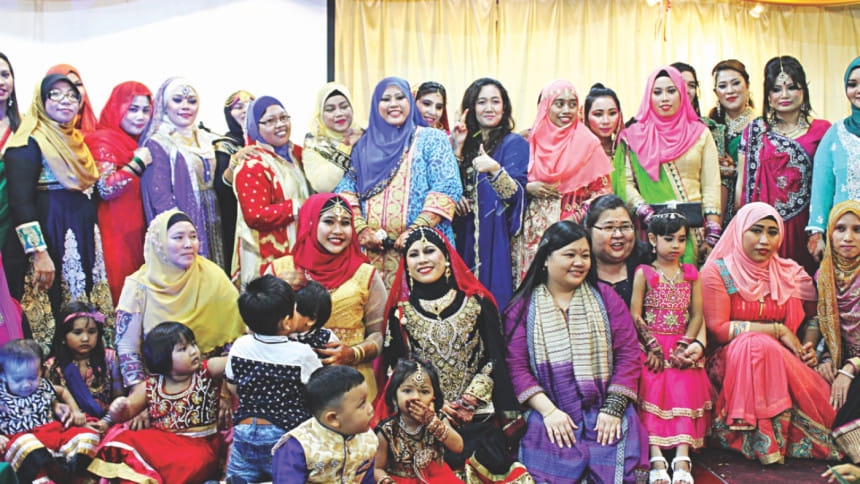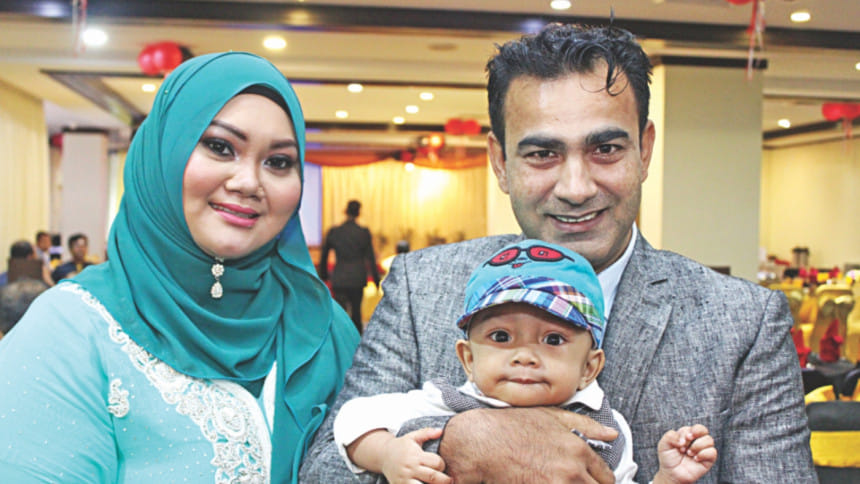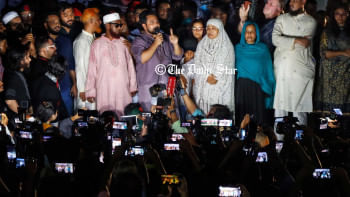Crossing divide

A man and a woman from two different countries can make a happy family if they respect each other's culture and values.
This is what came out after this correspondent talked to a number of Malaysian women and their Bangladeshi husbands living in Malaysia, home to nearly six lakh Bangladeshi migrant workers.
"We want to promote family values. This is something very much present in Bangladeshi society as well. Parents take care of their children and children respect their parents," said Shahida Sasha Binti Mohd Rashidi, 32, wife of Bangladeshi expatriate worker Quamrul Hasan Suman.
Things were not that easy at the beginning, and there still are many challenges that every diasporic community faces. But many families are now promoting cultural bond so that their children can learn about their roots, respect cultures and traditions of both parents and feel proud of being children of mixed marriages.
In order to create a platform to strengthen cultural bond, Rashidi and two other women, Noor Aziza Binti Muslim and Susi, formed an association called Malaysian Wife of Bangladesh Club in January this year. All women members in the association are Malaysian women having Bangladeshi husbands.
They organised a programme at Grand Continental Hotel in Kuala Lumpur on December 5 to present 26 wives with the Iron Lady Award for their success in maintaining a happy family and good education for their children.
Asked about the social stigma attached to Malaysian women marrying Bangladeshi men, Rashidi said the Malaysian society did not look negatively at the couples of mixed marriage or at their children anymore.
"We don't think that we are treated differently. We rather want to say we are happy families and Bangladeshis are good husbands," she told this correspondent, sitting at a Bangladeshi restaurant -- Roshona Bilash -- at Bukit Bintang of Kuala Lumpur on December 10.
Rashidi, a graduate in accounting and now a businesswoman, said they realised very well that children of mixed marriages might suffer from identity crisis at some point in their life. Referring to the association, she also said, "Mixed marriages cannot be blamed for this. So, we took the initiative to unite the mixed marriage couples to know each other and introduce Bangla history, tradition and culture among our children."
She said their next generation thus would know cultures and traditions of two nations.

Malaysia formally began recruiting Bangladeshi migrant workers in the 1990s. Their recruitment has since stopped several times following reports of abuses by employment agencies and Malaysian employers or Malaysian authorities.
Sometimes Malaysian authorities cited Bangladeshi people's resemblance with Indian film actors while explaining the recruitment ban. They also said Bangladeshis created "social problems here".
Yet, Bangladeshi workers have continued to work diligently here. Many have established their own business, contributing to the Malaysian economy, and many have tied the knot with Malaysian women. Although no exact figure is available, expatriates say there would be over 500 Bangladeshis who have married Malaysian women.
Shahida Sultana, first secretary (labour) of Bangladesh High Commission in Kuala Lumpur, who attended the December 5 programme, lauded the initiative.
She told The Daily Star that mixed married couples might sometimes feel alienated in any society. She said now that many of them were united through the association, they could build stronger ties among themselves.
"I also requested them to educate their children about Bangladesh's independence war, the martyrs, and the values that had inspired the freedom fighters," Shahida said.
Mohammad Faisal, a Bangladeshi expatriate, said Bangladeshis earned a bad name some 20 years back when some of them, having married Malaysian women, had abandoned them.
"Now that bad name is gone. We have a positive image now. Our wives are proving it," he said.

 For all latest news, follow The Daily Star's Google News channel.
For all latest news, follow The Daily Star's Google News channel. 








Comments